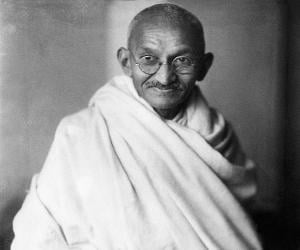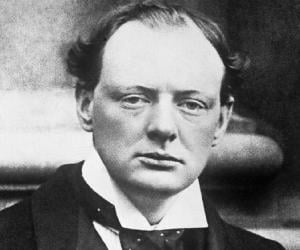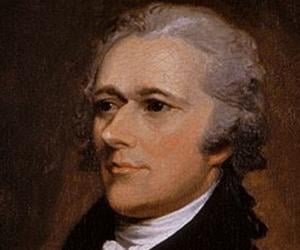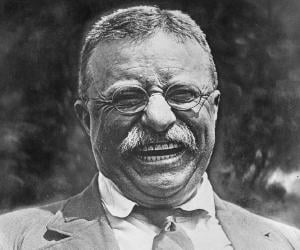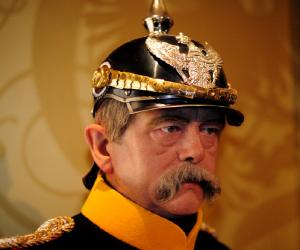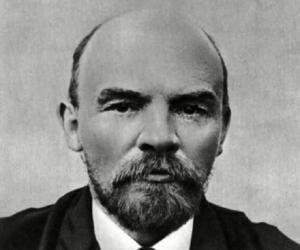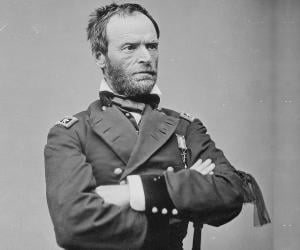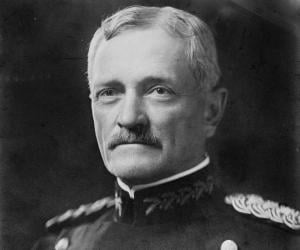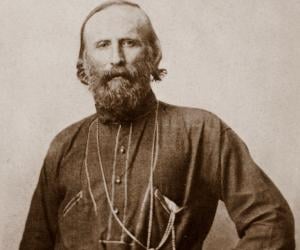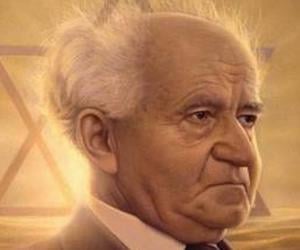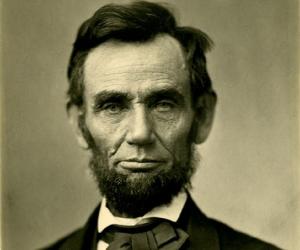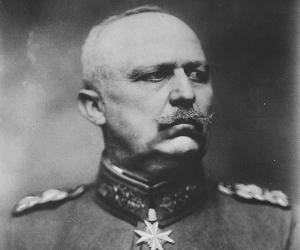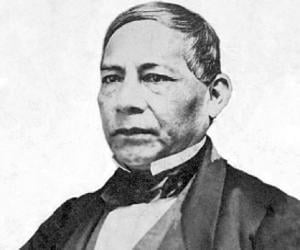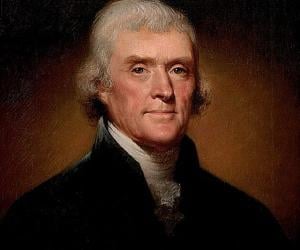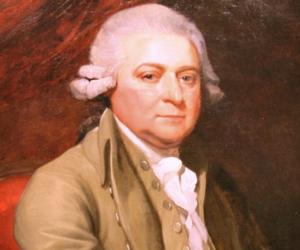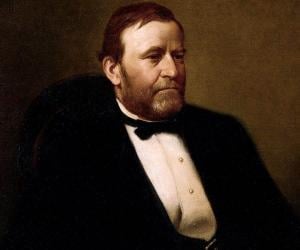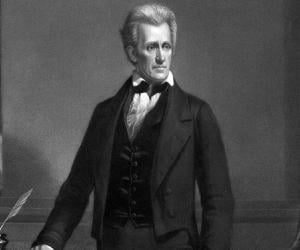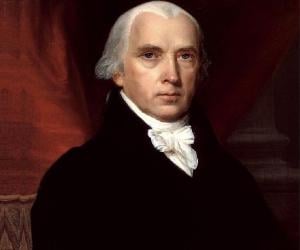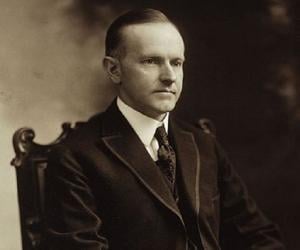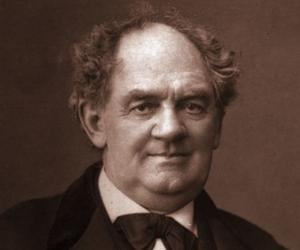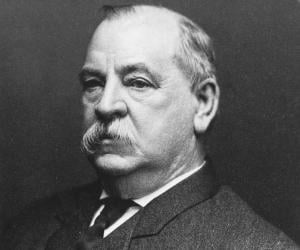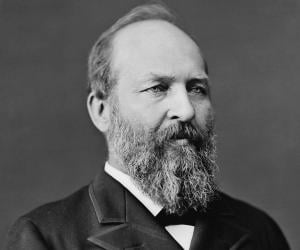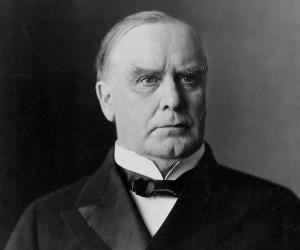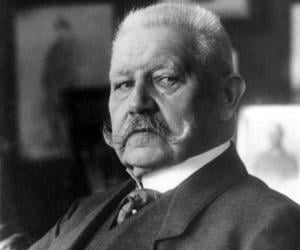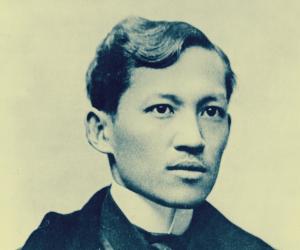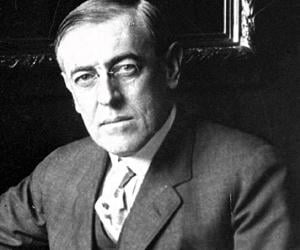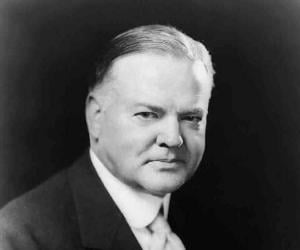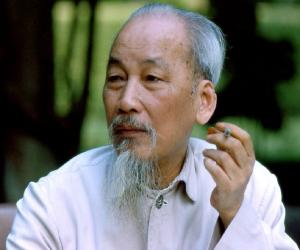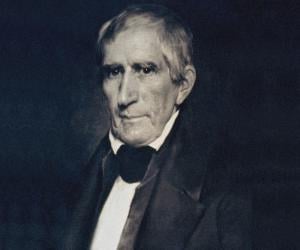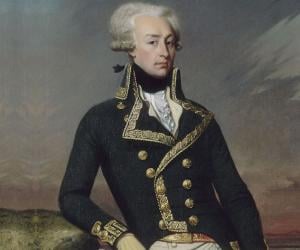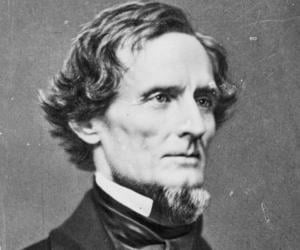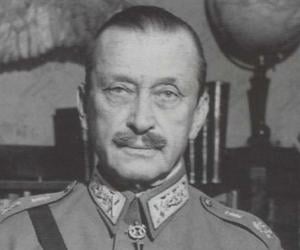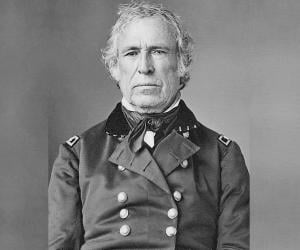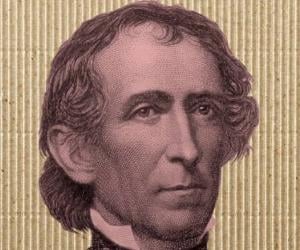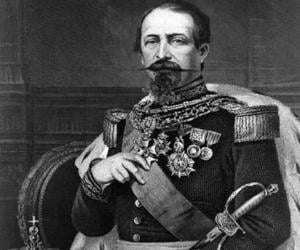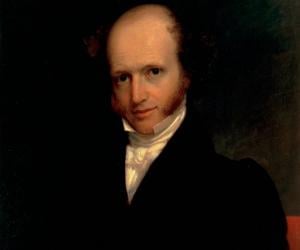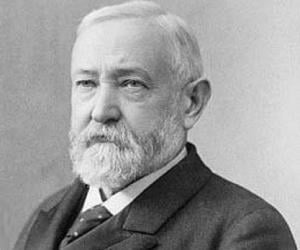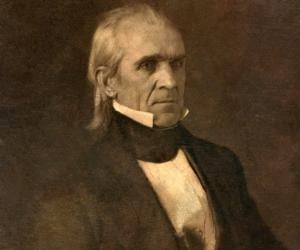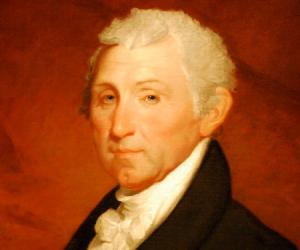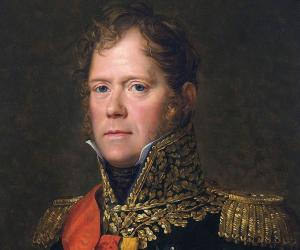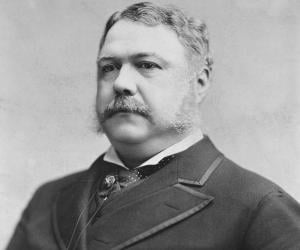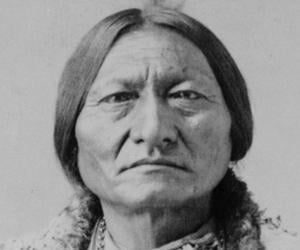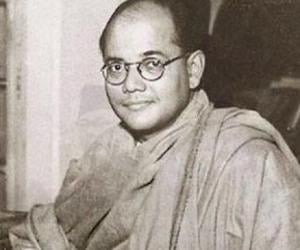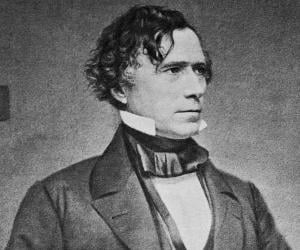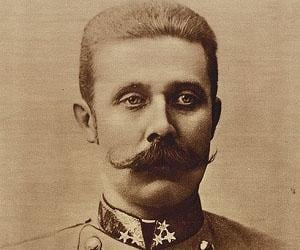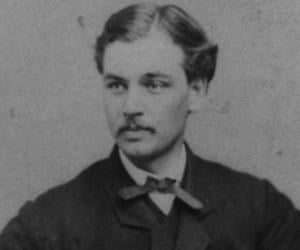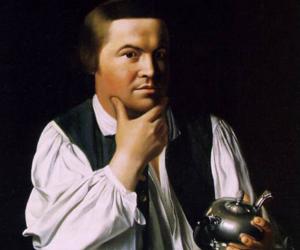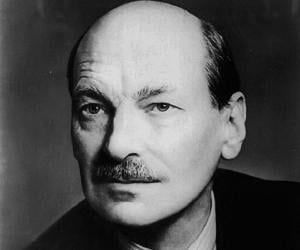An Indian lawyer and anti-colonial nationalist, Mahatma Gandhi was a major figure in India’s fight for independence from British rule. He is renowned for his employment of non-violent resistance and civil disobedience methods. Despite his popularity, he had numerous detractors as well and was assassinated in 1948. He is widely considered the Father of the Nation in India.
The former Prime Minister of the United Kingdoms, Winston Churchill, is known for successfully leading his country during the Second World War against the Nazi Germany. An officer in the British army, he also served as a war correspondent before venturing into politics. One of the most influential peoples in British history, Churchill was also an accomplished painter.
Known as America’s one of the most influential Founding Fathers, Alexander Hamilton was a delegate to the Constitutional Convention and served as the first secretary of the treasury. He also fought in the American Revolutionary War and was considered as a leading votary of the strong central government.
The 26th president of the United States, Theodore Roosevelt is generally ranked as one of the five best presidents of the country. A man of many talents, he was a politician, conservationist, naturalist, and writer. He supported Progressive Era policies in the early 20th century and championed his "Square Deal" domestic policies.
A commander of the Confederate States Army during the American Civil War, Robert E. Lee commanded the Army of Northern Virginia. He was a skilled tactician who served in the US Army for 32 years. Brilliant from a young age, he was a top graduate of the US Military Academy. In his later years, he became president of Washington College.
Vladimir Lenin played a key role in the history of Russian politics by developing a political ideology called Leninism. During and after his lifetime, Lenin had a massive influence over international communist movement. He is widely regarded as one of the most influential and significant personalities of the 20th century.
John J. Pershing was a senior United States Army officer who served as the commander of the American Expeditionary Forces (AEF) in World War I. In his later years, he mentored generals who led the United States Army during World War II. He was promoted to General of the Armies rank, the highest possible rank in the United States Army.
Italian general, patriot, and republican Giuseppe Garibaldi is remembered for the role he played in the Italian unification and the creation of the Kingdom of Italy. He is considered one of Italy's "fathers of the fatherland." A highly proficient military general, he also led the Expedition of the Thousand on behalf of Victor Emmanuel II. He died in 1882.
A self-educated lawyer, Abraham Lincoln rose from modest background to become one of the greatest presidents of America. The 16th president of the country, who is also known as Honest Abe and the Great Emancipator, played a crucial role in establishing a truly democratic government, abolished slavery, modernised economy and led the country during the American Civil War.
German military leader Erich Ludendorff gained fame with the victories at Liège and Tannenberg during World War I. He promoted the theory that Marxists, Jews, and Freemasons were responsible for Germany’s defeat in the war. He later became a military theorist, writing books such as The Total War.
Benito Juarez was a Mexican lawyer and politician. He served as the 26th president of Mexico from 1858 to 1872, becoming the first president of Mexico who was of indigenous origin. He died of a heart attack in 1872. To date, he is revered as "a preeminent symbol of Mexican nationalism and resistance to foreign intervention."
The 2nd Vice President and the 3rd President of America, Thomas Jefferson was one of the Founding Fathers of USA and the principal draftsman of the Declaration of Independence. Jefferson was a staunch advocate of democracy and a strong believer of individual rights and religious freedom, despite the fact that he himself owned nearly 600 slaves.
One of the Founding Fathers of America, John Adams was a statesman, attorney, and diplomat who served as the second president of the United States. He was a principal leader of the American Revolution. As a lawyer, he was devoted to the right to counsel and presumption of innocence. His administration has been favorably ranked by historians and scholars.
The 18th president of the United States, Ulysses S. Grant held office from 1869 to 1877. He led the Union Army as Commanding General of the United States Army during the American Civil War and was a war hero. As president, he stabilized the post-war national economy and created the Department of Justice. Historians generally recognize his presidential accomplishments.
Andrew Jackson was the 7th President of USA. His presidential reign has been termed as Jacksonian democracy and witnessed the shift of political power from established elites to ordinary voters. Coming from humble beginnings, Jackson knew the struggle of the masses and thus, worked towards creating a more inclusive country. His picture has been featured on the front side of $20 bill since 1928.
James Madison played an important role in drafting the US Constitution and the US Bill of Rights and is hailed as the Father of the Constitution. He also co-wrote The Federalist Papers, considered to be a seminal work of political science. As president, he led the country into the 1812 war and historians place him as an above-average president.
The 30th president of the United States, Calvin Coolidge started his career as a lawyer before becoming an influential American politician. A man of few words with a dry sense of humor, Calvin Coolidge represented the middle class, which worked in his favor. Despite being a reclusive politician, Coolidge gave 520 press conferences, making himself available to reporters quite often.
P. T. Barnum was an American politician, showman, and businessman. He is credited with founding the famous Barnum & Bailey Circus, which ran for 146 years. He is also credited with co-founding the Bridgeport & Port Jefferson Steamboat Company, which is one of the oldest American ferry companies. His life and work have inspired many films, including The Greatest Showman.
Grover Cleveland, a Democratic Party member, was the President of the United States from 1885 to 1889 and then again from 1893 to 1897. He is known for his campaign for political reform and fiscal conservatism. However, he was unable to deal with the economic depression in his second term as President, which led to massive decline in his popularity.
The 20th president of the United States, James A. Garfield began his career as an attorney. Born into poverty, he struggled throughout his childhood and youth to become a respected lawyer. He eventually entered politics and rose through the ranks to be elected the president. Unfortunately, he was assassinated less than seven months after he took office.
The 25th President of the United States, William McKinley led America to victory in the Spanish-American War. During his presidency, he played a major role in promoting American industry by raising protective tariffs, which in turn boosted the country's economic growth. He also played a key role in the American Civil War.
Jose Rizal was a Filipino polymath and nationalist. An ophthalmologist by profession, Rizal turned towards writing and inspired the Philippine Revolution through his writings. The revolution eventually led to Philippine independence and Rizal became a national hero. His life has inspired several biographical films and TV series.
From presidential cabin of Princeton University to presidential office of the White House, Woodrow Wilson ushered a series of progressive reforms that changed the American politics forever. The 28th President of USA, Woodrow Wilson introduced several ground-breaking policies including the Federal Reserve Act. He played a key role in founding the first intergovernmental organisation—the League of Nations—for which he was awarded the Nobel Peace Prize.
The 31st president of the United States, Herbert Hoover, was sworn into the office in 1929, the year the Great Depression struck the American economy. Earlier, Hoover was a successful mining engineer and had earned a reputation of a humanitarian who fed numerous Europeans during and after WWI. His policies during the depression, though, could not provide relief to people.
The ninth president of the US, William Henry Harrison died 31 days into his presidential term, becoming the shortest-serving US president ever. His demise caused a brief constitutional crisis pertaining to the succession to the presidency. Subsequently, Vice President John Tyler became the new president, setting an important precedent in terms of transfer of the presidency in such situations.
Marquis de Lafayette was a French aristocrat and military officer, who is remembered for fighting in the American Revolutionary War, as the commander of American troops in several battles. After returning to France, he played key roles in the French Revolution of 1789 and the July Revolution of 1830. Considered a hero in both America and France, he advocated the end of slavery.
Jefferson Davis was the president of the Confederate States of America from 1861 to 1865. He was also the U.S. secretary of war and had fought in the Mexican–American War earlier. He was against secession. He wrote an autobiography named The Rise and Fall of the Confederate Government.
Carl Gustaf Emil Mannerheim was a Finnish statesman and military leader who served as the leader of the White Guard during the Finnish Civil War of 1918. He also played a key role during World War II where he served as the Chief of Defense of Finland's defense forces. Thanks to his achievements, Mannerheim is regarded as Finland's greatest statesman.
The tenth president of the United States, John Tyler was dubbed His Accidency as he became the president after the sudden death of President William Henry Harrison when the former was serving as the vice president. Tyler's acceptance of full presidential powers set a prominent precedent and served as a model for succession to the future presidents.
Martin Van Buren was an American statesman credited with co-founding the Democratic Party, one of the world's oldest and contemporary political parties. He served as the eighth president of the US and later became a prominent anti-slavery abolitionist leader. He also played a key role in forming the two-party system in the US.
Benjamin Harrison was the 23rd U.S. President and is remembered for his efforts to pass the McKinley Tariff and the Sherman Antitrust Act. A qualified lawyer, he was the great-grandson of Benjamin Harrison V. Known for strengthening the Navy, he also attempted to secure the voting rights of African–Americans.
The 11th president of the United States, James K. Polk was an advocate of Jacksonian democracy. He is credited with extending the territory of the US during the Mexican–American War. During his presidency, the US annexed the Mexican Cession, the Oregon Territory, and the Republic of Texas.
James Monroe, a Founding Father of the U.S., served as the American president from 1817 to 1825. He opposed European colonialism and issued the Monroe Doctrine. He had also been a U.S. secretary of state, the Virginia governor, a U.S. Senate member, and the American ambassador to Britain and France.
Michel Ney was a French military commander. One of the 18 Marshals of the Empire inaugurated by Napoléon Bonaparte, Michel Ney played important roles in the Napoleonic Wars and the French Revolutionary Wars. Nicknamed the Bravest of the Brave by Napoleon himself, Ney was renowned for his valor in wars.
An Indian nationalist known for his role in the country’s struggle for freedom from the British, Subhas Chandra Bose was a politician with radical views. He was part of the Indian National Congress in the late 1920s and 1930s. However, his association with Nazi Germany and Imperial Japan made him a controversial figure.
Franklin Pierce was an American politician who served as the 14th president of the US. A northern Democrat, Franklin Pierce's actions leading up to the American Civil War are believed to have contributed to the commencement of the war. Scholars and historians rank Pierce as one of the least memorable and worst US presidents.
Lawyer Robert Todd Lincoln, son of Abraham Lincoln, served as the U.S. Secretary of War from 1881 to 1885 and as the U.S. minister to the U.K. from 1889 to 1893. He had served in the Civil War, too, and had also been the president of the Pullman Car Company.
Clement Attlee was a British politician. As the Prime Minister of the UK, Attlee organized the granting of independence to Pakistan and India. in 1947. He also oversaw the independence of Ceylon and Burma. Regarded as one of the greatest prime ministers of the UK, Clement Attlee has been the subject of several plays and TV series.
